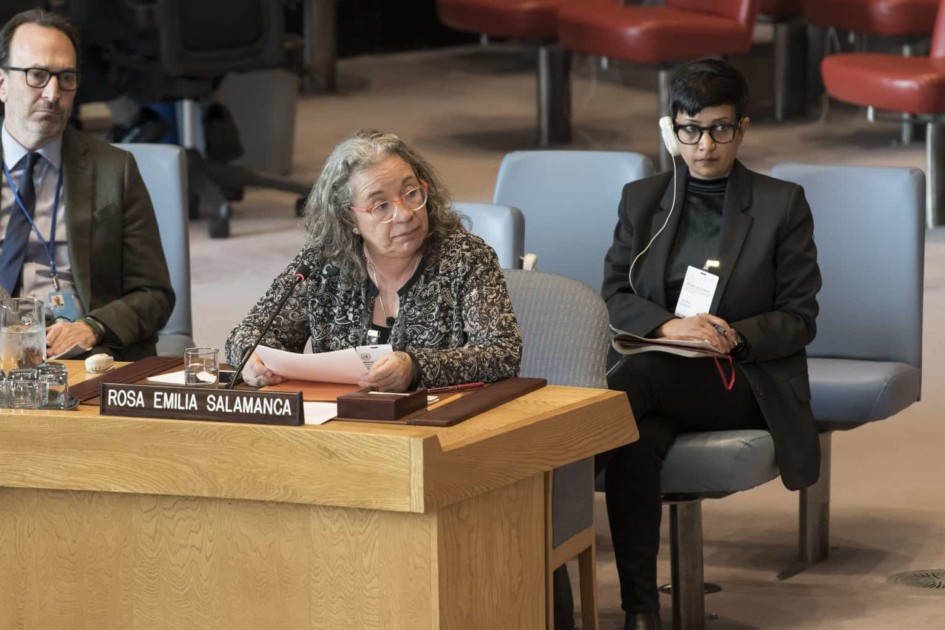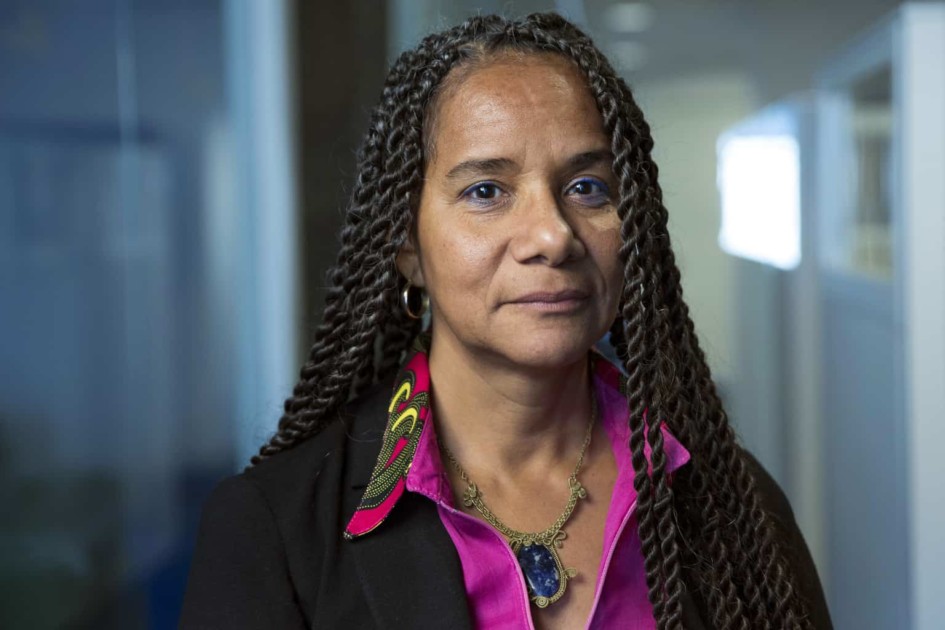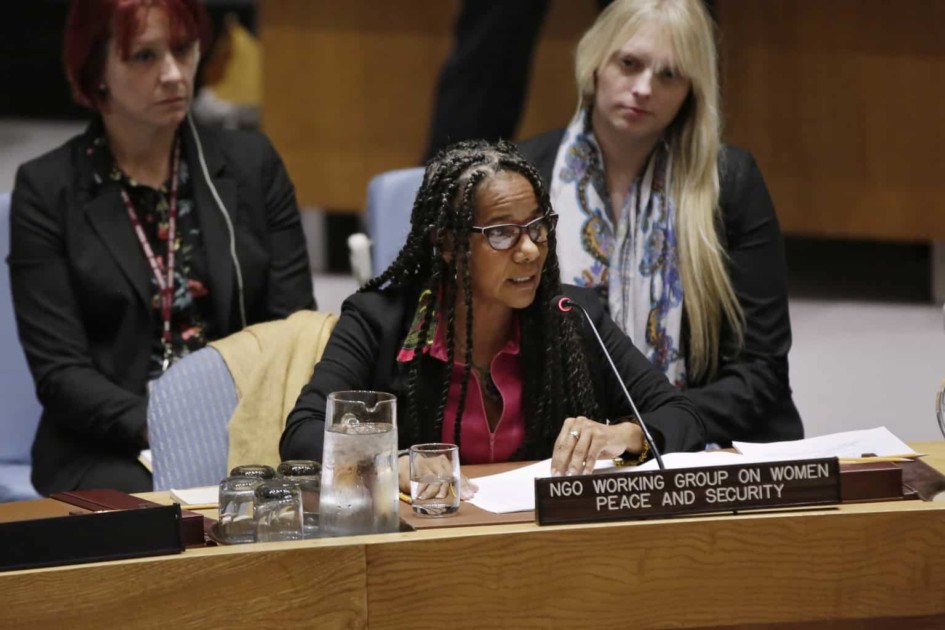Colombia
Colombia
Current and Past Recommendations to the UN Security Council (Monthly Action Points)
As the Council considers a report on the implementation of the mandate of the UN Mission in Colombia, discussions should reflect the complexity of the current situation with regards to the increase of death threats against, and killings of, human rights defenders, social leaders, including Afro-descendant and Indigenous community leaders, and the expansion of organized crime and paramilitary groups threating communities in areas recently vacated by FARC-EP and areas surrounding the UN Mission. Despite progress in implementing the Monitoring and Verification Mechanism (MVM), more efforts are needed in order to accelerate the implementation of security protocols laid out in the peace agreement to prevent the escalation of new forms of armed violence and enhance protection, particularly in Afro-descendant and Indigenous territories affected by the demobilization of FARC-EP.
As conveyed by civil society organizations (CSOs) during the recent Security Council field mission to Colombia, there remains an urgent need to maintain the presence of UN humanitarian agencies to monitor and report human rights violations during the implementation phase of the peace agreement, and to strengthen the role of the second UN mission in terms of security and protection of FARC-EP members once reintegrated in civilian life and the security of the receiving communities. As the Council discusses the situation in Colombia, the following should be considered:
- The UN Mission in Colombia should be encouraged to continue its positive practice of regular engagement with CSOs; there should be regular consultations at all levels, particularly with Afro-descendant, Indigenous and rural women’s groups. The inclusion of information on CSO consultations in Secretary-General reports (S/2017/252; S/2016/1095) is good practice and should be continued.
- The mandate of the second UN mission should include provisions for gender mainstreaming across the mandate of the mission, and regular consultation with CSOs, including women’s groups, as well as ensure gender parity amongst staff within the mission.
- Council members should request information about the efforts by the Government to respect free, prior and informed consultation and consent of Afro-descendant and Indigenous communities, in accordance with ILO Convention No. 169, before passing legislation pertinent to the implementation of the peace agreement that could impact Afro-descendant and Indigenous Peoples rights. Relatedly, Council members should inquire about the measures undertaken by the Government to support the High-level Special Body with Afro-descendant and Indigenous Peoples, established in accordance with the Ethnic chapter, to monitor the implementation of the peace agreement in Afro-descendant and Indigenous territories.
- Council members should request information about Government efforts to adopt measures and budget allocation to support rural women’s peace initiatives and their participation in economic and policy decisions that promote women empowerment in peace consolidation processes (SCR 1889 (2009)).
As the Council considers a report on the implementation of the mandate of the UN Mission in Colombia, discussions should reflect the complexity of the current situation with regards to the increase of death threats against, and killings of, human rights defenders, social leaders, including Afro-descendant and Indigenous community leaders, and the expansion of organized crime and paramilitary groups threating communities in areas recently vacated by FARC-EP and areas surrounding the UN Mission. Despite progress in implementing the Monitoring and Verification Mechanism (MVM), more efforts are needed in order to accelerate the implementation of security protocols laid out in the peace agreement to prevent the escalation of new forms of armed violence and enhance protection, particularly in Afro-descendant and Indigenous territories affected by the demobilization of FARC-EP.
As conveyed by civil society organizations (CSOs) during the recent Security Council field mission to Colombia, there remains an urgent need to maintain the presence of UN humanitarian agencies to monitor and report human rights violations during the implementation phase of the peace agreement, and to strengthen the role of the second UN mission in terms of security and protection of FARC-EP members once reintegrated in civilian life and the security of the receiving communities. As the Council discusses the situation in Colombia, the following should be considered:
- The UN Mission in Colombia should be encouraged to continue its positive practice of regular engagement with CSOs; there should be regular consultations at all levels, particularly with Afro-descendant, Indigenous and rural women’s groups. The inclusion of information on CSO consultations in Secretary-General reports (S/2017/252; S/2016/1095) is good practice and should be continued.
- The mandate of the second UN mission should include provisions for gender mainstreaming across the mandate of the mission, and regular consultation with CSOs, including women’s groups, as well as ensure gender parity amongst staff within the mission.
- Council members should request information about the efforts by the Government to respect free, prior and informed consultation and consent of Afro-descendant and Indigenous communities, in accordance with ILO Convention No. 169, before passing legislation pertinent to the implementation of the peace agreement that could impact Afro-descendant and Indigenous Peoples rights. Relatedly, Council members should inquire about the measures undertaken by the Government to support the High-level Special Body with Afro-descendant and Indigenous Peoples, established in accordance with the Ethnic chapter, to monitor the implementation of the peace agreement in Afro-descendant and Indigenous territories.
- Council members should request information about Government efforts to adopt measures and budget allocation to support rural women’s peace initiatives and their participation in economic and policy decisions that promote women empowerment in peace consolidation processes (SCR 1889 (2009)).
Relevant Resources










